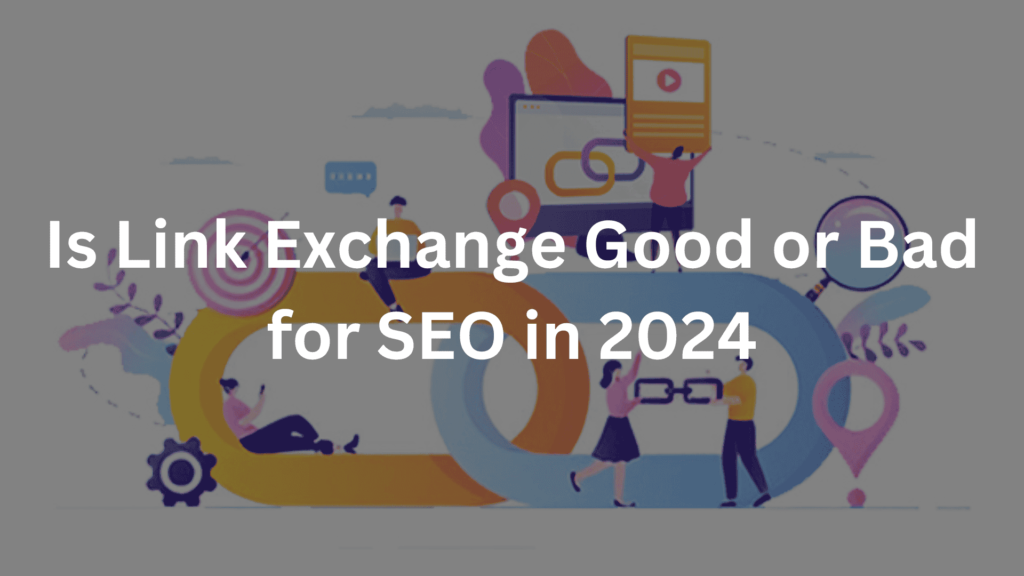What is Link Exchange?
Link exchange is technically an alliance of websites that work like a web ring. Website owners register their sites with a central organisation that runs the exchange and in turn get paid for the exchange’s HTML code which they insert into their web pages.
In a web ring, the HTML code consists of circular carousel navigation while in a link exchange the HTML code results in displaying banner ads of other members’ websites in the exchange.
In simple terms, a link exchange is a deal between two or more websites to give or trade links. Brands exchange links to build links quickly, boost their authority , improve rankings, etc.
People call them reciprocal links , link exchanges, and link swaps. Brands do these exchanges to build links quickly, boost their authority, improve rankings, etc.
Is Link Exchange Good or Bad for SEO?
Link exchange has advantages and disadvantages for those who use the web for marketing. It can be beneficial by attracting highly targeted readers to increase the “link popularity” of a website and is a static method of hyperlinking. It can be harmful because it can distract visitors to other sites before they have fully explored the site. Google does not encourage link exchange or paid linking activity.
It is strictly prohibited for website owners who are looking to increase their search engine rankings. According to Google, excessive link exchanges and “link schemes” can block the linked site in the SERPs or ban it altogether.
According to John Mueller,
Link exchanges that include ‘link to me and I’ll link to you’ are against our webmaster guidelines and our algorithms will look at that and try to understand what’s going on here and try to ignore those links and the web spam team will also find that it’s not okay. If the majority of your links are from link exchanges, they will apply a manual action to it, so this is something to avoid.”
If webmasters want to avoid Google bans.
It is a good practice to avoid spammy link schemes because they are a short-term solution to a long-term problem.
Steps you can follow to get backlinks instead of link exchange:
There are many better ways you can go about getting backlinks than focusing on unethical methods like link exchange. According to Google’s quality guidelines, it is not a good way to ask for links from other sites, rather you should create unique content that automatically converts website owners to link to it as mentioned in the quality guidelines below:
We’ll highlight some of the steps we take for our outreach campaign to promote content instead of asking for direct links from other brands.
Find potential links:
Link mining is a way to find pages you want to get a link to.
There are hundreds of places where you can search for new links such as Google search results, your competitors’ backlinks or competitor link targets.
First, we will find link readers who will find our content relevant and meaningful.
For example, we want to promote our blog Digital Marketing for Beginners: Simple and Broad because we believe it is one of the best resources on the topic.
Once we have solid content, we can start promoting it by following our outreach process. So we will find bloggers who have written content related to digital marketing and need relevant studies. We will find many opportunities so that we can maximise our chances of getting the different types of links we want for our content.
Formulating your contact email:
After finding engagement prospects, the next step is to craft an outreach email.
Here is the screenshot of the email contact:
The first part of your cold outreach email is essential as you can review important elements like subject line, opening line and approval at this stage.
Find your prospects’ contact details:
We use a tool called FindThatLead to find email addresses for any web domain or LinkedIn profile. You can easily search for a lead, verify their email address and send them a direct message. In the screenshot below, we are searching for the email address of a marketing guy. We get their verified email address using the FindThatLead tool.
Final steps:
Our final step is to personalise the email outreach to the prospect. Personalising your emails may include adding the prospect’s first name, address, company name, etc. It will indicate that you have done your research and when our outreach campaign is successful. We make sure to record all the finer details in Google Sheets as shown in the screenshot below:
This brings us to the end of a successful content promotion campaign!
And finally
Link exchanges can suppress your site in the SERPs if done excessively. It’s better to adopt white hat strategies and work with the best link building agencies to build quality backlinks and increase traffic to your website.
We’ve also provided an overview of our outreach process. You can proceed to get backlinks through ethical means, instead of participating in a link exchange


